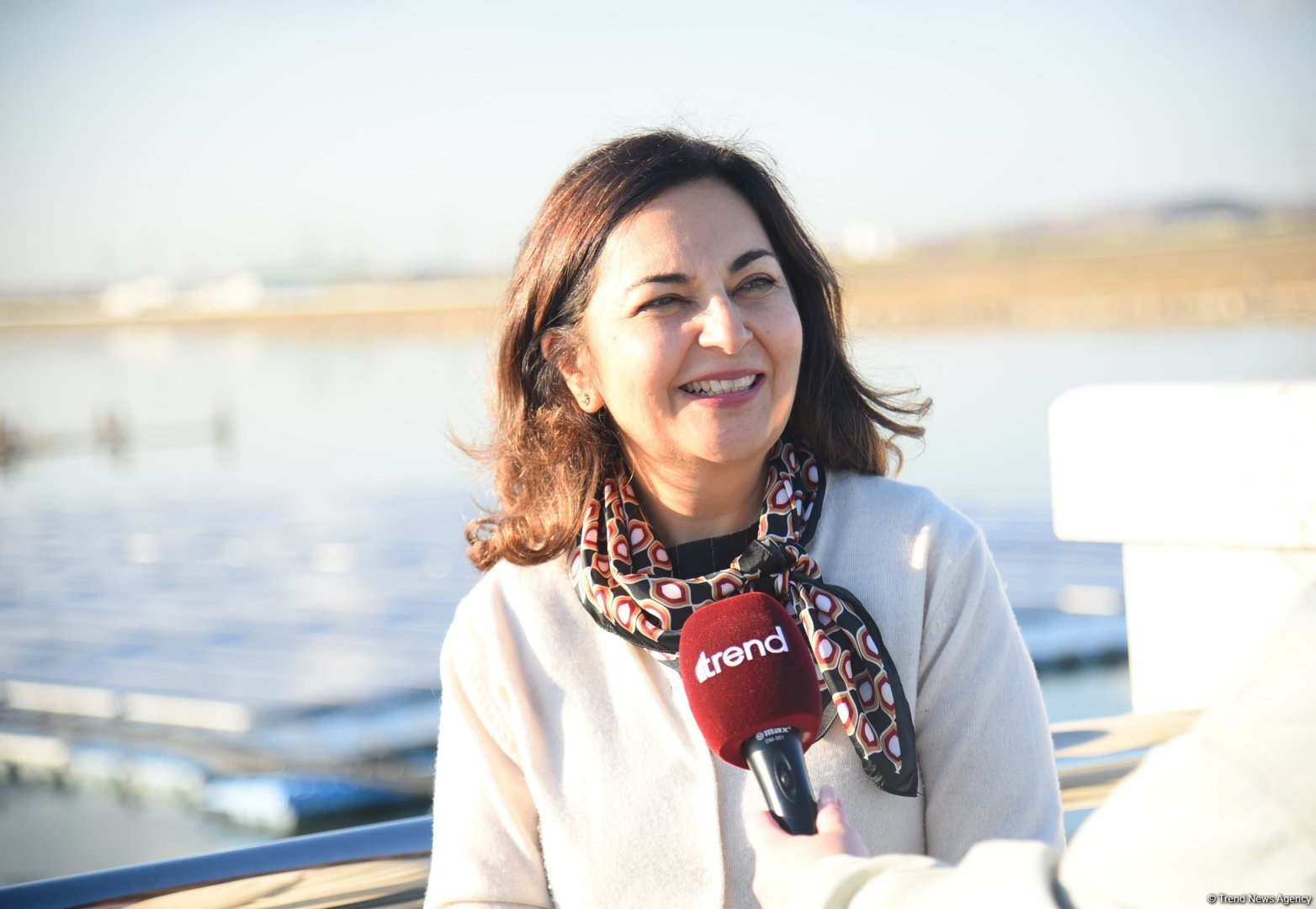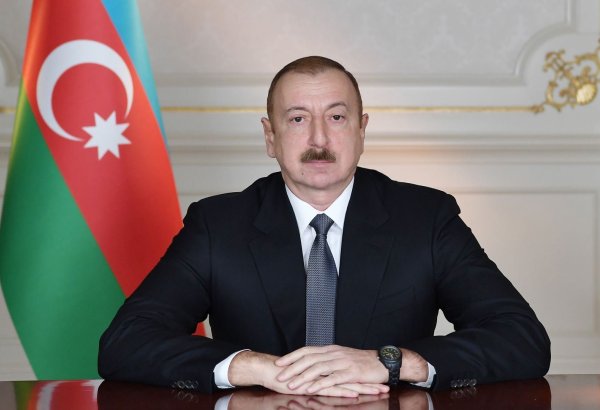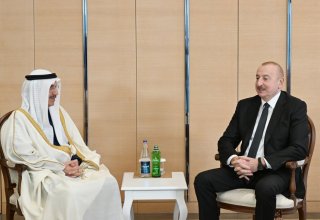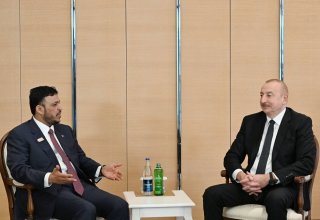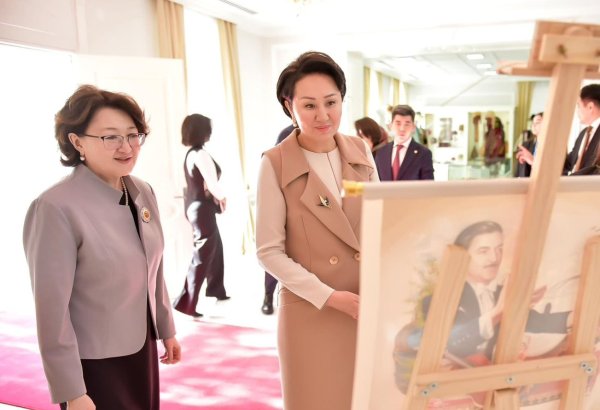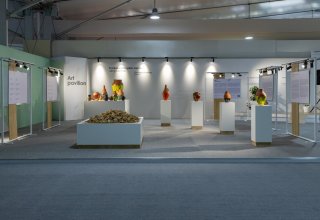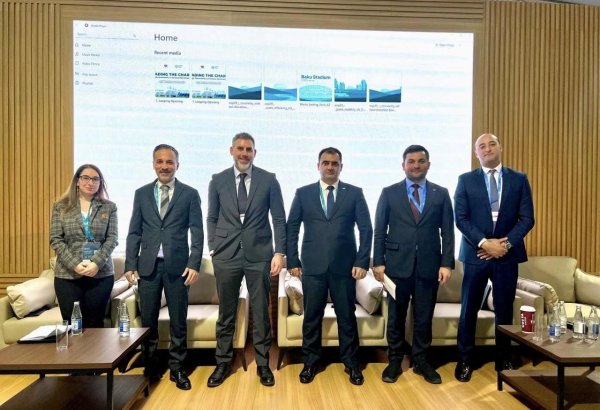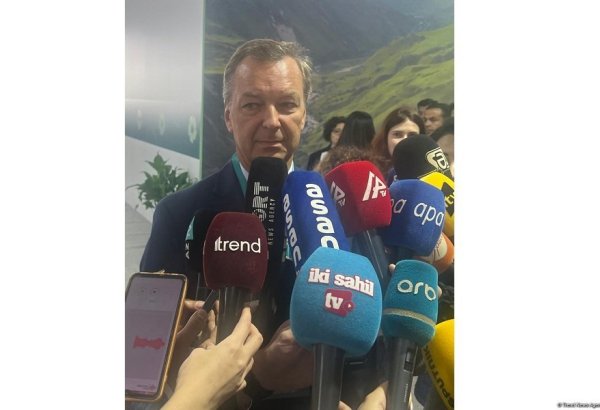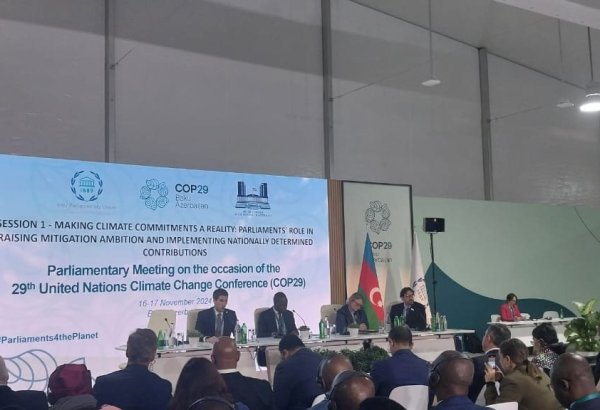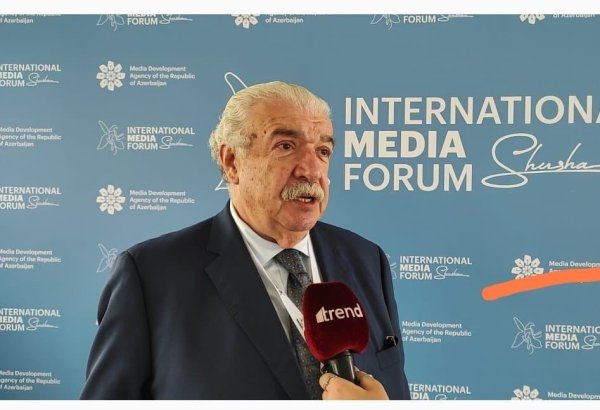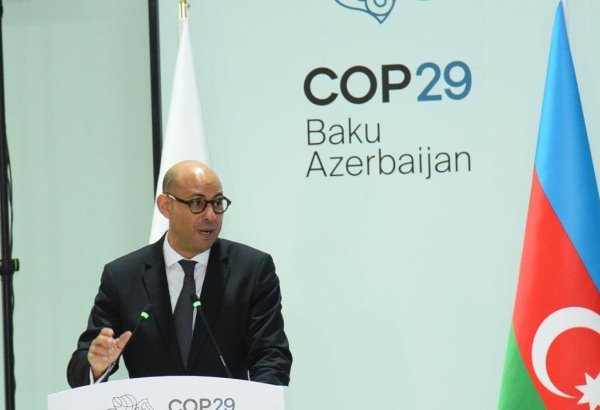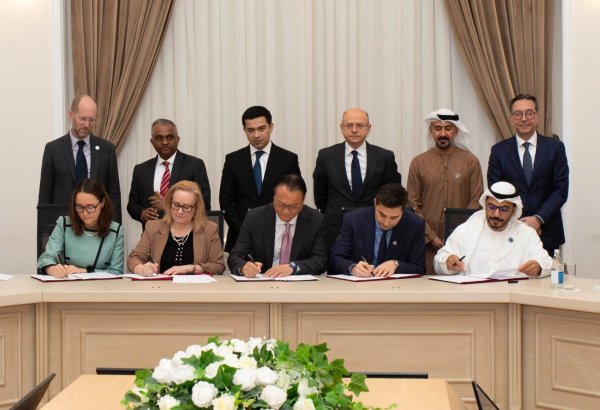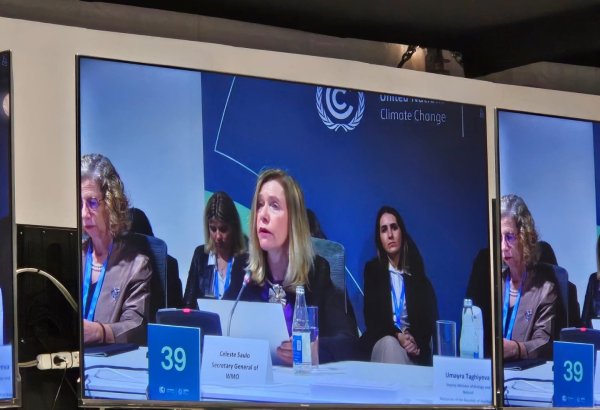BAKU, Azerbaijan, November 6. The Asian Development Bank (ADB) has prioritized climate action as a core focus of its operations, enhancing its funding capacity and mobilizing financial resources to support climate action and Azerbaijan's efforts at COP29, said ADB Country Director in Azerbaijan Sunniya Durrani-Jamal in an exclusive interview with TurkicWorld
Supporting Azerbaijan’s COP29 Presidency and strategic initiatives
Durrani-Jamal highlighted Azerbaijan's commitment to making COP29 a significant event for global climate action, stating, "As the climate bank for Asia and the Pacific region, ADB has been proud to support the COP29 Presidency in both the negotiations track and Action Agenda." She emphasized ADB's ongoing commitment to providing comprehensive support to the COP Presidency through technical assistance, which includes capacity building, advisory services, and knowledge sharing on critical issues for COP29.
Since May 2024, ADB experts have been collaborating with the Ministry of Ecology and Natural Resources (MENR) to prepare Azerbaijan’s first National Biennial Transparency Report (BTR) required under the Paris Agreement, due by December 31, 2024. "ADB experts organized a workshop and provided hands-on support to carry out detailed data collection and validation of the Greenhouse Gas (GHG) Inventory Report and National Inventory Document (NID)," Durrani-Jamal explained.
The ADB has also closely supported the COP29 Presidency's Article 6 negotiations team, conducting four workshops for MENR and the Ministry of Foreign Affairs (MOFA) to help them navigate international negotiations leading up to and during COP29, ensuring full operationalization of Article 6 of the Paris Agreement.
In addition, ADB is working with the COP29 Presidency on various Action Agenda initiatives across sectors, including just transition, urban development, and human development areas such as education, health, and green skills. Durrani-Jamal noted, "ADB has worked closely with the COP29 Presidency on developing the Baku Principles on Human Development for Climate Resilience".
During COP29, ADB plans to launch several initiatives aligned with the Presidency’s Action Agenda, including a Climate and Education Playbook and a Climate & Health portal. Durrani-Jamal stated, "Our ADB-led initiatives on just transition, NDC 3.0, Article 6, Energy Transition Mechanism (ETM), Nature Solution Finance Hub for Asia and the Pacific, Community Resilience Partnership Program, and Climate and Health Initiative will be showcased at COP29".
ADB's commitment extends to regional climate action through the Central and West Asia Regional Economic Cooperation (CAREC) Program, where Azerbaijan plays a pivotal role. The CAREC Secretariat, hosted by ADB, has actively engaged with the COP29 Baku Initiative for Climate Finance, Investment, and Trade. The CAREC Partnership, co-hosted by Azerbaijan’s Ministry of Economy and ADB, is set to occur on Finance Day, November 14.
ADB President Masatsugu Asakawa will attend key events at COP29. As the current Chair of the MDB Climate Action Working Group, ADB plans to issue a joint statement with other multilateral development banks (MDBs) and announce its Climate Finance commitments.
Durrani-Jamal added, "ADB’s representation at the highest level at COP29 affirms our commitment as Asia and the Pacific’s climate bank and reinforces our position as a well-established development partner".
Further speaking, the country director noted that, since 1999, when Azerbaijan joined ADB, the bank has committed more than $5 billion for environmentally sustainable and socially inclusive projects in transport, energy, health care, and agriculture . "We have provided this assistance primarily to the public sector but are increasingly engaging with the private sector in Azerbaijan".
"2024 is a very special year for us as it marks 25 years of Azerbaijan-ADB partnership. ADB’s President Masatsugu Asakawa visited Azerbaijan this year in June. He reassured the government of ADB’s continuing support for reforms in the country to achieve the strategic priorities outlined in Azerbaijan 2030, and in meeting Azerbaijan’s regional and international commitments. We commend the government for prioritizing sustainable growth including through the country’s energy transition, investing in an inclusive and equitable society with a focus on employment and social protection, and spending on education and innovation to create a competitive and skilled workforce," she added.
Expanding regional connectivity
ADB has invested more than $1.5 billion in transport projects in Azerbaijan. Emphasizing Azerbaijan’s position as a vital transit hub, she stated: "We recognize the strategic importance of Azerbaijan given its location at the crossroads of the East-West and North-South transport corridors. In fact, Azerbaijan plays a crucial role in connecting the People’s Republic of China and the economies of Central Asia and the Caucasus with Europe".
Many of the ADB-supported projects in Azerbaijan, Durrani-Jamal explained, are "actually part of a broader regional connectivity network". A key component of this network is the CAREC Corridor 2, known as the Middle Corridor, which integrates road, rail, and sea routes across the Caspian and Black Seas, facilitating containerized transit traffic between Asia and Europe. "ADB is ready to work with the government of Azerbaijan and other neighboring countries to increase the operational efficiency of regional transport corridors," she noted.
Durrani-Jamal pointed to ADB’s solid experience in developing complex multimodal transport infrastructure across Asia over the past five decades. "We have solid credentials in developing complex multi-modal transport infrastructure in Asia and the Pacific," she said, citing a range of projects, including "bridges, railways, urban metros, roads, airports, and ports".
"Our approach to regional infrastructure development has of course evolved based on our experience," she continued, explaining that ADB is now focusing on creating "integrated transport networks, including regional networks, that use intelligent data and tracking systems" to streamline customs clearance and improve asset management.
Durrani-Jamal highlighted specific projects that demonstrate ADB’s commitment, such as the $131.5 million additional loan approved in September 2024 for Azerbaijan’s Railway Sector Development Program. Alongside this, "the government and ADB have also invested $47 million for the Azerbaijan Railways Digital Transformation Project," she said, aimed at "improving operational efficiencies and cross-border tracking of goods".
ADB looks to enhance cybersecurity and digital skills within Azerbaijan Railways as well. "ADB is also planning to provide a grant for technical assistance to enhance the cybersecurity of railway operations while building digital skills of its workforce".
"In addition to transport and energy infrastructure, Azerbaijan is an active member and contributor to the CAREC working groups on skills development and health. Azerbaijan also plays an essential role in developing regional strategies and sharing best practices to enhance capacity-building, workforce development, and health outcomes across regional member countries. In the future, we expect water security issues to become prominent topics of deliberation among CAREC members," Durrani-Jamal added.
ADB's support for Azerbaijan's transition to green power - spotlight on Boyukshor Lake Solar PV
The Government and people of Azerbaijan are to be commended for hosting COP29 this year, the country director pointed out.
One of Azerbaijan's key initiatives is its commitment to add 1,870 MW of renewable energy to the grid for domestic consumption by 2027. ADB has already invested $1.7 billion in various successful energy projects in Azerbaijan, with plans to continue supporting the government’s shift from hydrocarbons to green energy through analytical studies, policy advice, and financing.
"Our strategy to support Azerbaijan’s green energy transition includes investment in solar and wind power, the development of green energy corridors, and the promotion of e-mobility, including electric vehicles and alternative fuels such as green hydrogen," Durrani-Jamal explained. Additionally, ADB is focused on assisting with the decarbonization of district heating systems.
A notable project is the co-financing of Masdar's 230MW Garadagh solar power plant near Alat, which is set to become the largest solar facility in the Caucasus. "The Garadagh Solar PV Plant is expected to provide electricity to 110,000 homes and reduce CO2 emissions by 200,000 tons per year," Durrani-Jamal noted. This project signifies a milestone in Azerbaijan’s renewable energy landscape, supported by long-term international financing from ADB, totaling $21.4 million.
Looking ahead, ADB is gearing up to seek board approval for two additional solar projects co-financed with the European Bank for Reconstruction and Development (EBRD) in November.
In July 2024, ADB, in collaboration with the Ministry of Energy and the Azerbaijan Renewable Energy Agency, inaugurated the innovative 100 kW Floating Solar Photovoltaic (FPV) Pilot Project on Boyukshor Lake, conveniently located near the Baku Olympic Stadium, the main venue for COP29. Durrani-Jamal expressed optimism about this initiative: "ADB is looking into alternative business models with private sector participation for managing the FPV facilities in the greater Baku area and other economic regions of Azerbaijan."
Additionally, ADB is keen to support wind energy investments in the country and plans to engage in discussions with both government officials and private sector investors regarding this potential.
On a regional level, Azerbaijan, Kazakhstan, and Uzbekistan signed a Memorandum of Understanding on May 2, 2024, for a Caspian Sea electricity transmission cable project. This initiative is part of the "green energy corridors" concept, designed to transmit renewable energy from the Caspian region via an undersea cable running across the Black Sea to Europe.
To further enhance the domestic utilization of green energy, ADB is offering its support to the Azerbaijani government in developing green e-mobility infrastructure through the procurement of electric buses. Durrani-Jamal emphasized, "We are also supporting the decarbonization of the district heating system," underscoring ADB's commitment to fostering a sustainable energy future in Azerbaijan.
New Country Partnership Strategy - ADB’s vision
Moreover, currently, ADB is working on a new Country Partnership Strategy (CPS) for Azerbaijan, which will guide its investments and initiatives from 2025 to 2029.
The country director emphasized that the strategy will be informed by comprehensive diagnostic work across several critical areas, including green infrastructure financing, water resources and food security, export diversification, and the development of green skills.
Durrani-Jamal expressed her vision for improving ADB’s operational approach, stating, "I hope to be able to improve our operational approach and clearly communicate the value we offer to our clients". She noted that ADB aims to move away from standalone sector projects, instead fostering dialogue among government entities to collaboratively develop multi-sector solutions. She elaborated, "Of course, the projects could be delivered by separate ministries, but the results will be delivered through collaboration".
Highlighting the importance of efficient resource use, she pointed out the necessity of ensuring sufficient water availability for expanding agricultural production amidst anticipated water scarcity. "A case in point is improving efficiency in water use and energy use," Durrani-Jamal said.
Another focal point of the strategy is transitioning Azerbaijan's economy from a hydrocarbon-based model to one that is centered on manufacturing, logistics, and eventually, knowledge-based industries. Durrani-Jamal acknowledged the government’s efforts to incentivize investments in techno parks and promote digital skills development, especially for girls and in regions beyond Baku. "The government is actively providing incentives to encourage investments in techno parks and encouraging digital skills development including for girls and in regions outside Baku to ensure equity," she noted.
To attract both domestic and international investment, Durrani-Jamal underscored the necessity of continuous improvements in governance and transparency. "Several steps are being taken in this direction from the establishment of ASAN service centers for citizens to improving governance and transparency among state-owned enterprises and financial institutions," she explained. Addressing challenges such as fostering the growth of small businesses, creating a robust middle class, and implementing policies that support affordable housing will require persistent efforts. "These are tough challenges that will need to be addressed steadily," she added.
ADB also provides technical assistance to Azerbaijan on "Improving Governance and Public Sector Efficiency", through technical advice on public financial management, corporate governance, and private sector development.
"Under PFM we have included technical advice on sovereign green bonds, climate budget tagging, transition to green public financial management and climate finance for MSMEs, etc. We are helping MSMEs’ successfully transition towards a sustainable, inclusive, low-carbon business growth model, by developing a climate change roadmap and action plan. The action plans are designed to: i) enhance convergence, harmonization, and integration of climate policies among MSMEs; ii) strengthen capacities of public and private stakeholders and decision-makers to integrate climate mitigation and adaptation measures in MSMEs investment and operations; iii) improve MSMEs’ access to resources including technology, climate finance, and climate advisory services," she said.
The bank is also exploring potential avenues for collaboration with Azerbaijani banks. "Depending on the progress of these discussions, ADB aims to provide substantial support to local banks, thereby enhancing their capacity to contribute to the country's green economic development".
Durrani-Jamal concluded with optimism about ADB’s role in Azerbaijan’s development, stating, "We have a talented team at ADB, and I am confident that with their support and the support of our partners, ADB will continue to make significant contributions to the development of Azerbaijan and the region".








